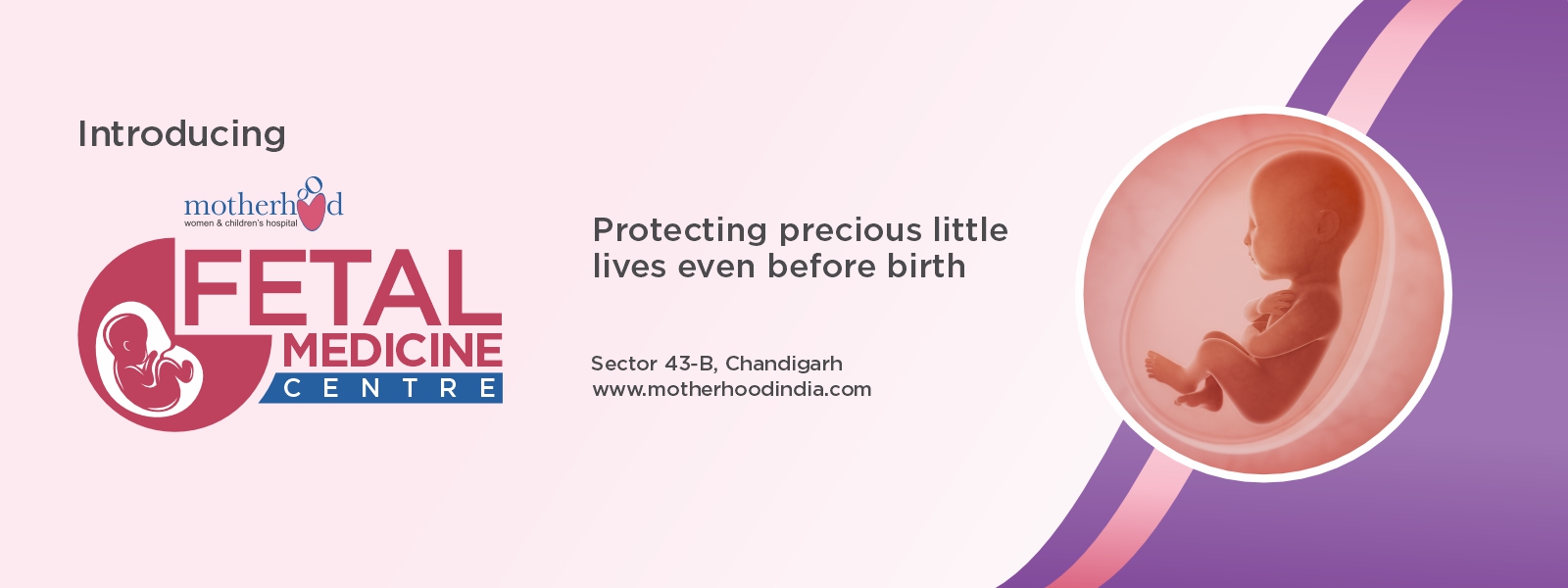
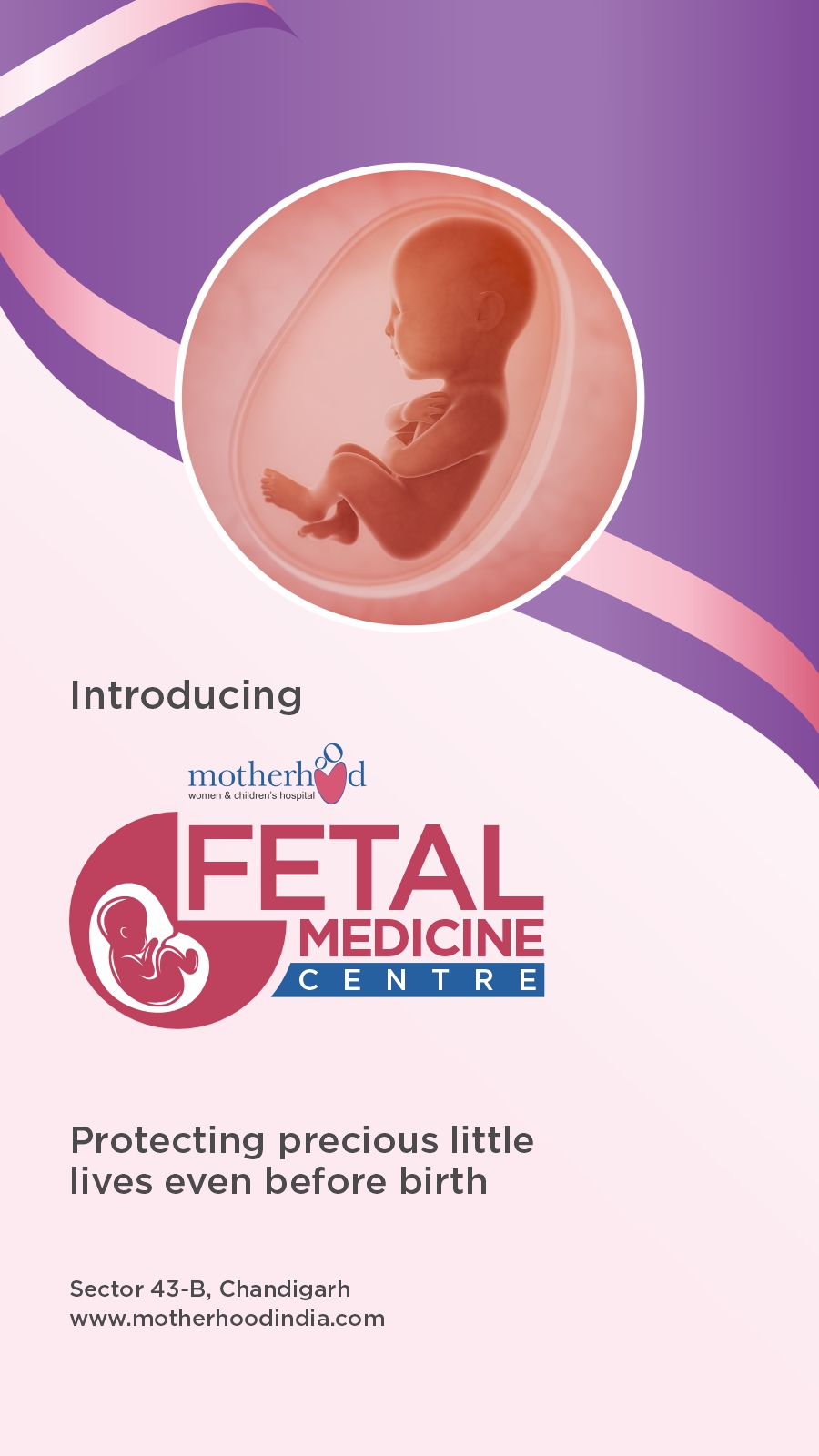
Introducing Fetal Medicine Centre
Specialized care for little miracles
Fetal medicine focuses on the health and well-being of the unborn child. This specialized branch of medicine encompasses the diagnosis, monitoring, and treatment of fetal conditions, ensuring that the tiniest patients receive the best possible care even before they take their first breath. Through advanced imaging techniques, genetic testing, and innovative interventions, fetal medicine specialists can detect and manage potential issues early on, making way for healthier pregnancies and better outcomes.
At Motherhood Hospitals, Sector 43, Chandigarh, our Fetal Medicine experts not only safeguard the health of the baby but also support expectant parents through one of the most critical and emotional journeys of their lives.
Request A Call Back
Advanced ultrasound scans for Fetal health assessment
Obstetrician-Led Centre
Our centre is led by experienced obstetricians who bring clinical expertise and a deep understanding of clinical protocols, unlike other centres managed by radiologists. This unique advantage allows us to provide tailored treatments based on ultrasound and other investigation reports.
Complete Clinical Team Under One Roof
We house a comprehensive team of specialists, including Surgeons, Cardiologists, Nephrologists, Neonatologists, and Geneticists. Many issues detected on ultrasound require a multidisciplinary approach, and our ‘Perinatal Board’ discusses such cases to provide holistic care.
Prevention and Treatment Procedures
Our prevention strategies are based on a detailed history of past events such as preeclampsia, prematurity, and fetal defects. Treatment procedures include intrauterine transfusions, fetal reduction, and laser treatments. Specialized tests like amniocentesis and CVS are available, with continuous surveillance to ensure healthy outcomes.
Ultrasound Guidance During Labor
Our fetal medicine specialists guide obstetricians on the use of ultrasound during labor and delivery, enhancing outcomes and increasing the chances of normal delivery.
Perinatal Board Consultations
The ‘Perinatal Board’ offers expert clinical opinions, a first-of-its-kind service in the region, benefiting patients from distant towns as well.
Monitoring and Special Procedures
For conditions like multiple pregnancies and fetal anemia, our specialists provide strict monitoring and special procedures such as RFA or laser treatments, ensuring optimal care and timely delivery decisions.
Fetal Anemia Management
For fetuses at risk of anemia due to maternal antibodies, we offer rigorous monitoring and intrauterine blood transfusions when necessary, ensuring the best possible outcomes.
Early Pregnancy Scan
Confirms the presence of a heartbeat and the site of early pregnancy, providing essential reassurance.
Extended Nuchal Scan
It's done between 11-13 weeks of pregnancy to assess various things such as the correct dates, risks of chromosomal abnormalities, especially Down syndrome, early structures of the baby, and blood flow to the womb. These results, compared with the history and examination of the mother, are used to predict the risk of high blood pressure or low birth weight of the baby.
Early Anomaly Scan
Provides a detailed examination of your baby's anatomy, ensuring everything is developing as it should. It's considered after 16 weeks of pregnancy, in special circumstances, based on previous obstetric history or any findings from the extended Nuchal scan.
Detailed Anomaly Scan
It's done between 18-22 weeks of pregnancy as a routine to study in detail the structure of the fetus as well as the position of the placenta.
Fetal Echo
Gives an in-depth view of your babies' heart, ensuring its structure and function are developing as expected, even in the case of multiple fetuses.
Cervical Length Scan
Assesses the length and condition of the cervix, and the relation of the placenta to it.

Early Pregnancy Scan
Provides crucial insights into your baby's development, ensuring a healthy start from the very beginning.

Anomaly Scan
Provides a detailed examination of your baby's anatomy, ensuring everything is developing as it should.

Fetal Echo
Gives an in-depth view of your babies’ hearts, ensuring their structure and function are developing as expected, even in the case of multiple fetuses.

Growth Scan
Monitors your baby's development, ensuring they are growing healthily.

3D/4D Scan
Offers a lifelike view of your baby, creating unforgettable bonding moments with detailed images and real-time movements.

Viability Scan
Confirms the presence of a heartbeat and the health of your early pregnancy, providing essential reassurance.

Nuchal Scan
Assesses the risk of chromosomal abnormalities by measuring the fluid at the back of your baby's neck early in pregnancy.

Cervical Scan
Assesses the length and condition of the cervix, both crucial for a healthy pregnancy.
Expertise in Fetal Diagnostic procedures
Diagnostic procedures we perform

Chorionic Villus Sampling (CVS)
(before 15 weeks of pregnancy) - Chorion Villus Sampling (CVS) involves taking a very small sample of placental tissue, from the mother and sending it for various genetic tests as Required.

Amniocentesis
(after 15 weeks of pregnancy) - Amniocentesis involves taking a sample of the amniotic fluid surrounding the fetus, which contains fetal cells and is sent for various genetic tests as required.

Cordocentesis
(after 20 weeks of pregnancy) - Cordocentesis involves taking a sample of blood from the fetus's umbilical cord to detect blood disorders, infections, and genetic conditions.
Expertise in Fetal Therapy – cutting-edge technology meets compassionate care
Procedures we perform

Fetal Anaemia
Fetal anaemia occurs when the fetus has a low red blood cell count, often due to incompatibility between the mother’s and fetal blood (isoimmunization), infections, or certain genetic conditions. This condition can result in cardiac failure and fetal hydrops.
Procedure
IUT (Intra Uterine Transfusion) An intrauterine transfusion (IUT) is a procedure where blood is directly given to the fetus through the umbilical cord, pregnancies.

TTTS – Twin-Twin Transfusion
Syndrome:
Twin-twin transfusion syndrome (TTTS) is a condition where blood flow between twins sharing a placenta monochorionic twins) becomes unequal. It affects approximately 10 to 15 per cent of monochorionic, iamniotic (two amniotic sacs) twin pregnancies.
Procedure
Fetoscopic laser ablation surgery Fetoscopic laser ablation surgery is a minimally invasive procedure for treating twin-twin transfusion syndrome (TTTS). A fetoscope is inserted into the uterus through a small incision in the mother’s abdomen to locate abnormal blood vessel connections in the twins’ shared lacenta. Laser energy is then used to seal these vessels and correct the imbalance.

Elevated Complications in Multiple Pregnancies:
In multiple pregnancies, such as those involving quintuplets, quadruplets, or triplets, there is an elevated risk of complications, which include structural and chromosomal abnormalities, which are often detected through ultrasound. The presence of these abnormalities can lead to significant health challenges and may endanger the lives of both the mother and the fetuses.
Procedure
Fetal Reduction
Fetal reduction involves reducing the number of babies in a multiple pregnancy, such as quintuplets, quadruplets, or triplets, to twins or a singleton, particularly when one or more babies show structural
abnormalities or increased risk for chromosomal abnormalities detected on ultrasound.
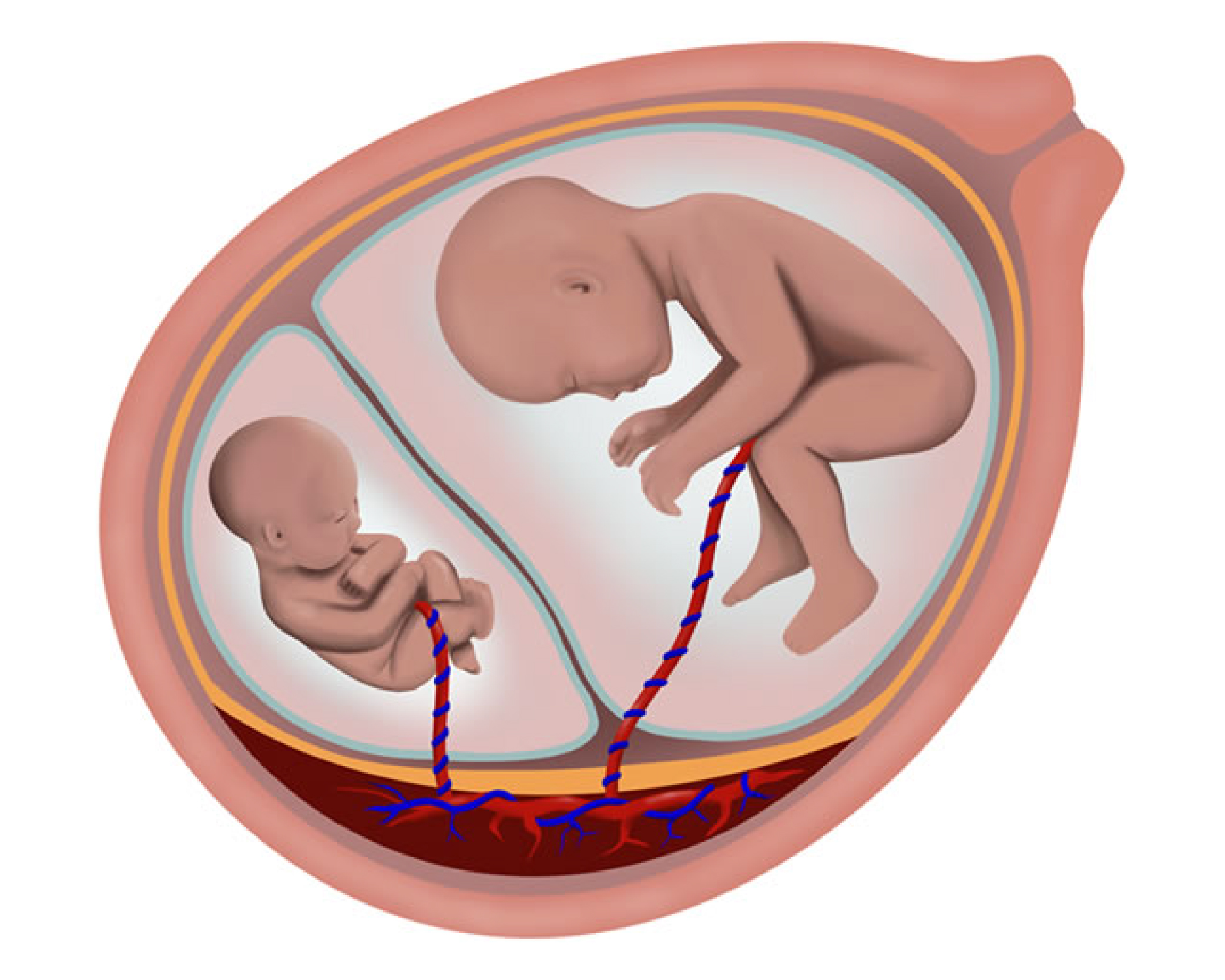
Selective IUGR / TRAPS:
Selective intrauterine growth restriction (sIUGR) in monochorionic twins occurs due to unequal placental haring, causing one twin to grow sub-optimally. The smaller twin’s weight typically falls below the 10th percentile, leading to significant weight disparity. SIUGR can affect blood flow and neurodevelopment.
Procedure
Radiofrequency ablation (RFA)
Radiofrequency ablation (RFA) is a minimally invasive fetal procedure used in monochorionic diamniotic
pregnancies where one fetus is very sick. RFA stops the blood supply to the affected fetus, protecting the
healthy one.
Bipolar cord coagulation
Selective bipolar cord coagulation (BCC) is a minimally invasive fetal procedure used when one fetus is very sick, endangering the other. BCC stops the blood supply to the sick fetus, protecting the healthy one from death or brain injury.
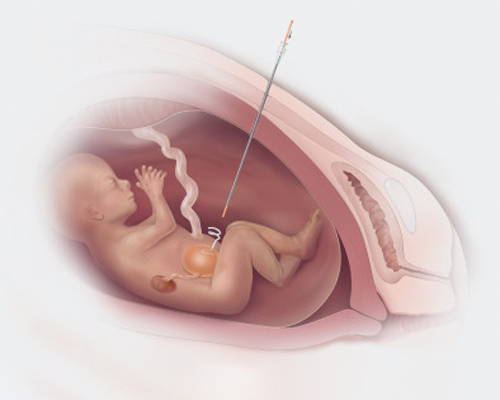
Placement of Shunts:
In fetal shunt placement, a hollow tube is inserted through the mother’s
abdomen into the fetus to drain fluid into the amniotic cavity. The most
common type, vesicoamniotic shunting, is used for urinary tract blockages like
bladder outlet obstruction. Thoraco amniotic shunting is done for large cyst in
fetal thorax.
Procedure
Placement of Shunts In fetal shunt placement, a hollow tube is inserted through the mother’s abdomen into the fetus to drain fluid into the amniotic cavity.
The most common type, vesicoamniotic shunting, is used for urinary tract blockages like bladder outlet obstruction.
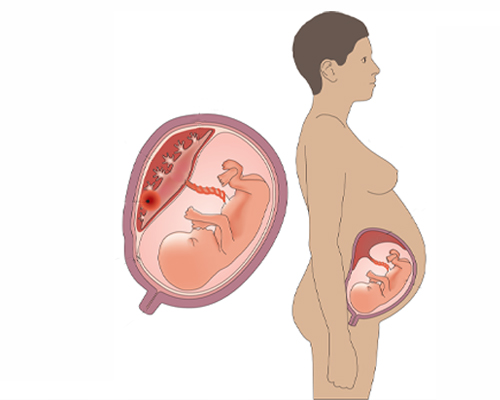
Intra Amniotic drug
This is a therapy recommended for various fetal conditions such as fetal
arrhythmia and fetal goitre.
Leading Genetics care & expertise to provide the best solutions
Genetic Counseling
Genetic counseling in fetal medicine provides critical support and information to expectant parents about potential genetic conditions that may affect their baby. Through detailed family histories, genetic testing, and risk assessments, counsellors help parents understand the implications of genetic findings, guide them through complex decision-making processes, and offer emotional support. This specialized counseling ensures that parents are well-informed and prepared to make the best choices for their family’s health and future.
Advanced Genetic Tests
Dual/ Quad tests: Typically performed in the first trimester, measure specific proteins in the mother’s blood and combine this with an ultrasound measurement of the fetal nuchal translucency. The quad test, conducted in the second trimester, measures four substances in the mother’s blood. These non-invasive tests provide valuable information about the likelihood of conditions such as Down syndrome, helping expectant parents make informed decisions about further diagnostic testing and their pregnancy.
NIPT: Advanced screening test in fetal medicine that analyzes cell-free fetal DNA circulating in the mother’s blood. It provides highlyaccurate information about the risk of common chromosomal conditions such as Down syndrome as well as certain sex chromosome abnormalities. NIPT is typically performed as early as 10 weeks into pregnancy and offers a low risk of miscarriage compared to invasive diagnostic tests and helps with decision-making and prenatal care. Advanced care to make sure you get the best solutions
Micro Array: Detects small deletions or duplications of DNA segments, known as copy number variants (CNVs). It provides a comprehensive assessment to identify potential genetic disorders that may not be detected by traditional tests. Microarray analysis is particularly valuable in cases where ultrasound or other tests suggest fetal abnormalities, offering detailed genetic information to aid in counseling for expectant parents.
Whole exome scanning: A cutting-edge genetic test that analyzes the protein-coding regions of the genome, known as the exome. It aims to identify variations in genes that may be responsible for a wide range of genetic conditions affecting fetal development. WES provides a comprehensive view of potential genetic causes, offering insights into rare and complex disorders that traditional tests might miss. This advanced technology is increasingly used to provide precise diagnoses and personalized care plans for families facing genetic challenges during pregnancy.
Clinical exome: A targeted genetic test that examines the protein-coding regions of the genome to identify variations associated with a wide range of genetic disorders CES provides detailed genetic insights that can help diagnose complex fetal conditions, guide medical management decisions, and provide valuable information for genetic counseling and family planning. This specialized testing plays a crucial role in understanding and managing genetic disorders during pregnancy.
What separates us from the rest or Comprehensive Fetal Medicine Specialties
Our centre is led by experienced obstetricians who bring clinical expertise and a deep understanding of protocols, setting us apart from other centres managed by radiologists. This unique advantage enables us to offer tailored treatments based on ultrasound and other investigation reports. As a one-stop clinic, we not only diagnose but also provide comprehensive counseling and treatment for both the fetus and mother when needed.
We house a comprehensive team of specialists, including Surgeons, Cardiologists,
Nephrologists, Neonatologists, and Geneticists. Many issues detected on ultrasound
require a multidisciplinary approach, and our ‘Perinatal Board’ discusses such cases
to provide holistic care.
Our prevention strategies are based on a detailed history of past events such as
preeclampsia, prematurity, and fetal defects. Treatment procedures include
intrauterine transfusions, fetal reduction, and laser treatments. Specialized tests like
amniocentesis and CVS are available, with continuous surveillance to ensure healthy
outcomes.
Our fetal medicine specialists assist obstetricians in using ultrasound during labor and delivery. This technique not only increases the safety of vaginal deliveries but also provides comfort to the patient and reassurance to the couple.
With the rise in maternal age and the growing prevalence of fertility treatments, twin births are becoming more common. Our Twin Clinic offers specialized care and support tailored to the unique needs of twin pregnancies.
Our Fetal Medicine specialists, who are obstetricians with special qualifications and extensive experience, ensure comprehensive care for both mother and baby throughout the pregnancy journey.
Meet our Perinatal Board
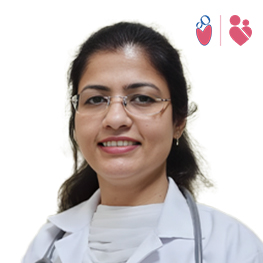
Dr Vimlesh Soni
MBBS, MD, DM
Consultant of Paediatrics & Neonatology
Book An Appointment
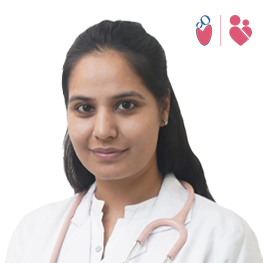
Dr. Chakshu Chaudhry
DM (Medical Genetics) MD (Pediatrics)
Consultant - Medical Genetics
Book An Appointment

Dr. Ashish Dharmik
MBBS, MS - eneral SurgeryG
Consultant - Paediatrician Neonatal Surgery
Book An Appointment
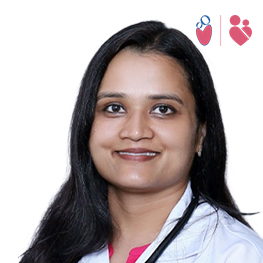
Dr Monika Chajjed
MBBS, Fellowship Paediatric Neurology and Epilepsy, DCH, DNB
Consultant - Peadiatric Neurologist
Book An Appointment

Dr. Tarandeep Singh
D.M (Cardiology)
Book An Appointment

Dr Nikhil Mehta
MS (Orthopaedics), Fellowship in Paediatric Orthopaedics (PGI)
Book An Appointment


 Toll Free Number
Toll Free Number






